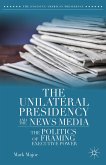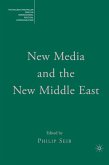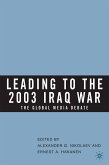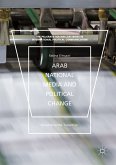Dieser Download kann aus rechtlichen Gründen nur mit Rechnungsadresse in A, B, BG, CY, CZ, D, DK, EW, E, FIN, F, GR, HR, H, IRL, I, LT, L, LR, M, NL, PL, P, R, S, SLO, SK ausgeliefert werden.
"This is a timely and significant work on the paradoxes of defining terrorism as a military problem. Unlike many of America's past conflicts, the Iraq War has been framed within a set of ideological narratives surrounding sub-national conflict. King and Wells identify the nature of these narratives and thoroughly examine their impact on competing policy positions. The Iraqi conflict developed within the context of a nebulous, controversial political position - a belief that the United States could declare war on a concept: terrorism. This book explicates the complexities of victory and defeat in a shadow war. Few have defined the problem so well." - Jonathan R. White, author of Terrorism and Homeland Security
'Through an examination of presidential speeches, elite media coverage, and congressional hearings and debates, the authors provide detailed documentation of thepersistence and success of the 'war on terror' rhetoric over time. In fact, they show that this discursive frame was impervious to criticism.' Presidential Studies Quarterly









